Filter by
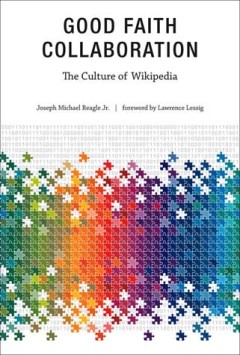
Good Faith Collaboration: The Culture of Wikipedia
Wikipedia, the online encyclopedia, is built by a community - a community of Wikipedians who are expected to "assume good faith" when interacting with one another. In Good Faith Collaboration, Joseph Reagle examines this unique collaborative culture;Wikipedia, says Reagle, is not the first effort to create a freely shared, universal encyclopedia; its early twentieth-century ancestors include Pa…
- Edition
- -
- ISBN/ISSN
- 9780262289719
- Collation
- -
- Series Title
- -
- Call Number
- -
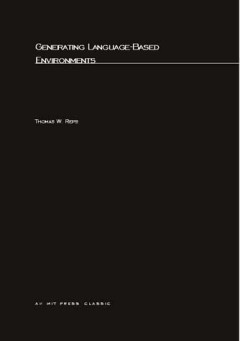
Generating language-based environments
"An MIT Press classic."Facsim. of ed. originally published: ?1984.This book addresses a fundamental software engineering issue, applying formal techniques and rigorous analysis to a practical problem of great current interest: the incorporation of language-specific knowledge in interactive programming environments. It makes a basic contribution in this area by proposing an attribute-grammar fra…
- Edition
- -
- ISBN/ISSN
- 0262256851
- Collation
- 1 online resource (138 pages)
- Series Title
- -
- Call Number
- 005 REP g
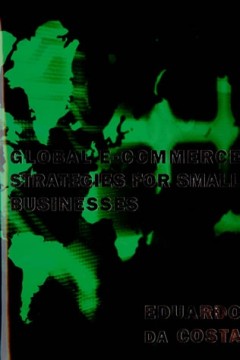
Global E-Commerce Strategies for Small Businesses
Small companies account for a surprising one-third of U.S. exports, and their market share is growing. The Internet has played a major role in helping these companies develop an increasingly powerful international presence. Global E-Commerce Strategies for Small Businesses describes the export opportunities e-commerce holds for small-to-medium size enterprises (SMEs) all over the world. The boo…
- Edition
- -
- ISBN/ISSN
- 0262262398
- Collation
- 1 online resource
- Series Title
- -
- Call Number
- 650 DAC g
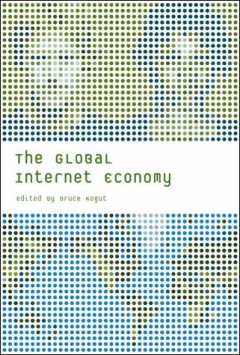
The global internet economy
By 2002, all but a handful of countries were connected to the Internet. The intertwining of the Internet and the globalization of finance, corporate governance, and trade raises questions about national models of technology development and property rights. The sudden ability of hundreds of millions of users to gain access to a global communication infrastructure spurred the creation of new firm…
- Edition
- -
- ISBN/ISSN
- 9780262277365
- Collation
- 1 online resource (xvi, 520 pages) : illustrations
- Series Title
- -
- Call Number
- 001 GLO
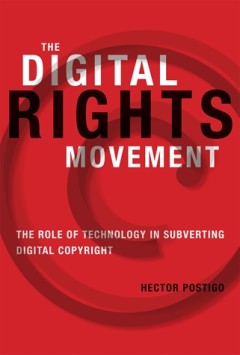
The digital rights movement: The role of technology in subverting digital cop…
The evolution of activism against the expansion of copyright in the digital domain, with case studies of resistance including eBook and iTunes hacks.OCLC-licensed vendor bibliographic record.
- Edition
- -
- ISBN/ISSN
- 9780262305334
- Collation
- 1 online resource.
- Series Title
- -
- Call Number
- -
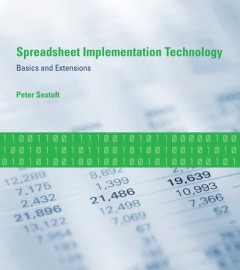
Spreadsheet implementation technology: Basics and extensions
"Spreadsheets are used daily by millions of people for tasks that range from organizing a list of addresses to carrying out complex economic simulations. Spreadsheet programs are easy to learn and convenient to use because they have a clear visual model and a simple efficient underlying computational model. Yet although the basic spreadsheet model could be extended, improved, or otherwise exper…
- Edition
- -
- ISBN/ISSN
- 0262326531
- Collation
- 1 online resource (xiii, 310 pages)
- Series Title
- -
- Call Number
- -
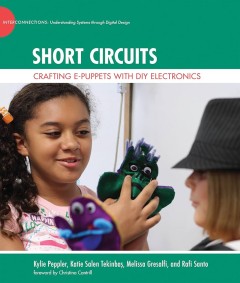
Short Circuits: Crafting e-Puppets with DIY Electronics
Tools and methods for creating electronic puppets.OCLC-licensed vendor bibliographic record.
- Edition
- -
- ISBN/ISSN
- 9780262320016
- Collation
- 1 online resource.
- Series Title
- -
- Call Number
- -
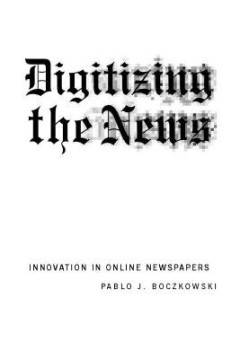
Digitizing the News: Innovation in Online Newspapers
In this study of how daily newspapers in America have developed electronic publishing ventures, Pablo Boczkowski shows that new media emerge not just in a burst of revolutionary technological change but by merging the structures and practices of existing media with newly available technical capabilities. His multi-disciplinary perspectives of science and technology, communication, and organizat…
- Edition
- -
- ISBN/ISSN
- 9780262268844
- Collation
- 1 online resource (xi, 243 pages) :illustrations.
- Series Title
- -
- Call Number
- -
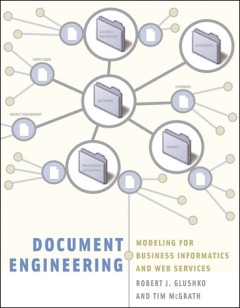
Document Engineering: Analyzing and Designing Documents for Business Informat…
Much of the business transacted on the Web today takes place through information exchanges made possible by using documents as interfaces. For example, what seems to be a simple purchase from an online bookstore actually involves at least three different business collaborations -- between the customer and the online catalog to select a book; between the bookstore and a credit card authorization…
- Edition
- -
- ISBN/ISSN
- 9780262273954
- Collation
- -
- Series Title
- -
- Call Number
- -
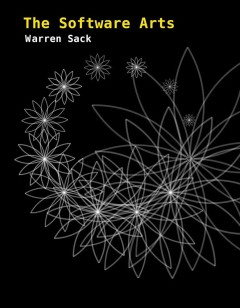
The Software Arts
An alternative history of software that places the liberal arts at the very center of software's evolution. In The Software Arts, Warren Sack offers an alternative history of computing that places the arts at the very center of software's evolution. Tracing the origins of software to eighteenth-century French encyclopedists' step-by-step descriptions of how things were made in the workshops of …
- Edition
- -
- ISBN/ISSN
- 9780262352369
- Collation
- 1 online resource (400 pages) :illustrations.
- Series Title
- -
- Call Number
- -
 Computer Science, Information & General Works
Computer Science, Information & General Works  Philosophy & Psychology
Philosophy & Psychology  Religion
Religion  Social Sciences
Social Sciences  Language
Language  Pure Science
Pure Science  Applied Sciences
Applied Sciences  Art & Recreation
Art & Recreation  Literature
Literature  History & Geography
History & Geography